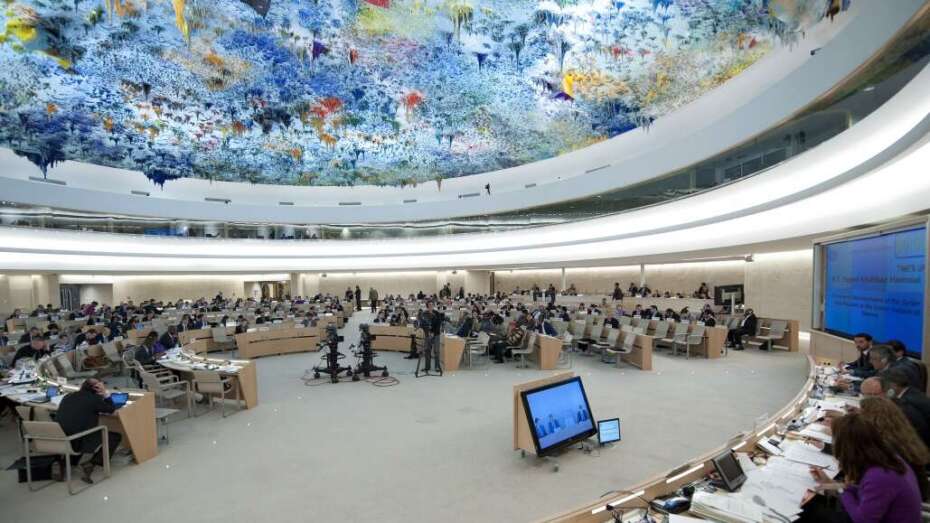Monitoring the core international human rights treaties
What do the treaty bodies do?
The treaty bodies perform a number of functions in accordance with the provisions of the treaties that established them. These include consideration of State parties’ periodic reports, consideration of individual complaints, conduct country inquiries and they also adopt general comments interpreting treaty provisions and organize thematic discussions related to the treaties (see below).
Consideration of State parties’ reports
When a country ratifies a treaty, it assumes a legal obligation to implement the rights recognized in that treaty. However, becoming a party to a treaty is only the first step, because recognition of rights on paper is not sufficient to guarantee that they will be enjoyed in practice.
So, in addition to their obligation to implement the substantive provisions of the treaty, each State party is also under an obligation to submit periodic reports to the relevant treaty body (except under the OPCAT) on how the rights are being implemented.
In addition to State parties’ report, the treaty bodies may receive information on a country’s human rights situation from other sources, including national human rights institutions (NHRIs), civil society organizations (CSOs), both international and national, United Nations entities, other intergovernmental organizations, and professional groups and academic institutions. Most committees allocate specific plenary time to hearing submissions from CSOs and UN entities.
In light of all the information available, the relevant treaty body examines the report in the presence of a State party’s delegation. Based on this constructive dialogue, the Committee publishes its concerns and recommendations, referred to as “concluding observations”.
Consideration of individual complaints
Six of the Committees (CCPR, CERD, CAT, CEDAW, CRPD, and CED,) can, under certain conditions, receive petitions from individuals. Any individual who claims that her or his rights under the treaty have been violated by a State party to that treaty may bring a communication before the relevant committee, provided that the State has recognized the competence of the committee to receive such complaints and that domestic remedies have been exhausted. In addition, three treaties (the International Convention on the Protection of the Rights of All Migrant Workers and Members of their Families, the Optional Protocol to the International Covenant on Economic, Social and Cultural Rights, and the Optional Protocol to the Convention on the Rights of the Child on a communications procedure) contain provisions for individual communications to be considered by their respective committees, but these are not yet operative.
Conduct country inquiries
Six of the Committees (CESCR, CAT, CEDAW, CRPD, CED, and CRC – when the relevant optional protocol enters into force) may, under certain conditions, initiate country inquiries if they receive reliable information containing well-founded indications of serious, grave or systematic violations of the conventions in a State party.
General Comments
The Committees also publish their interpretation of the content of human rights provisions, known as general comments on thematic issues or methods of work. These cover a wide range of subjects, from the comprehensive interpretation of substantive provisions, such as the right to life or the right to adequate food, to general guidance on the information that should be submitted in State reports relating to specific articles of the treaties.
Meeting of chairpersons
The treaty bodies are continually seeking ways to enhance their effectiveness through streamlining and harmonization of working methods and practices.
The annual Meeting of Chairpersons of the Human Rights Treaty Bodies provides a forum for members of the ten human rights treaty bodies to discuss their work, share best practices, and consider ways to enhance the effectiveness of the treaty body system as a whole.
Treaty body strengthening process
In 2009, the United Nations High Commissioner for Human Rights highlighted that the overall success of the human rights protection system, marked by the increase in the number of human rights instruments and corresponding monitoring bodies, together with greater compliance by States parties with reporting obligations, posed greater demands on the treaty bodies and her Office. She called on States parties as well as on other stakeholders to initiate a process of reflection on how to streamline and strengthen the treaty body system to achieve better coordination among these mechanisms and in their interaction with special procedures and the universal periodic review.
In response to the High Commissioner’s call, 19 consultations by stakeholders have taken place between 2010 and 2012.
On 22 June 2012, the High Commissioner has published a report compiling the various proposals made during the consultation process.
For a comprehensive overview of the United Nations human rights treaty system, download OHCHR Fact Sheet 30 here.

